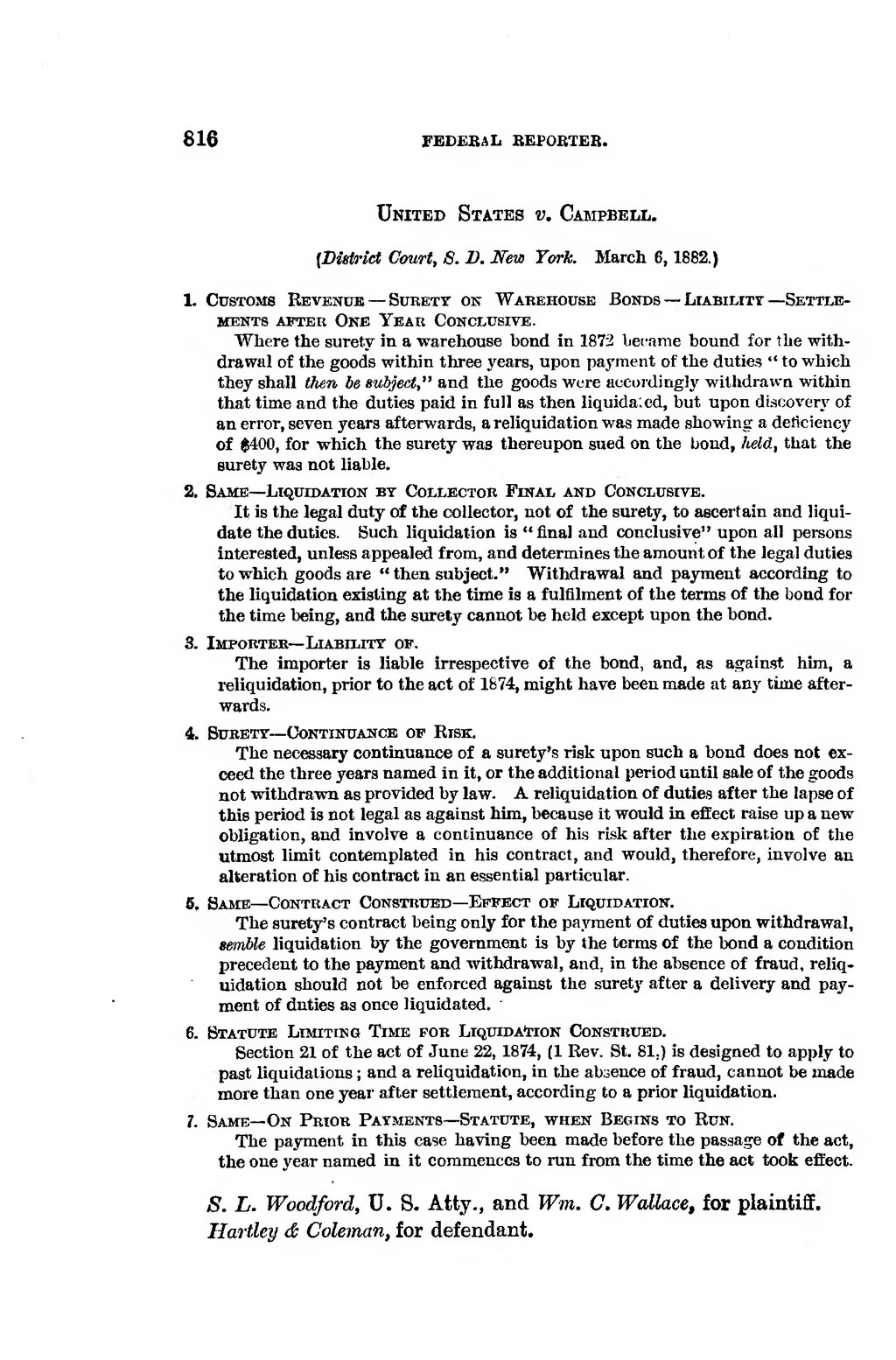United States v. Campbell.
(District Court, S. D. New York. March 6, 1882.)
Where the surety in a warehouse bond in 1872 became bound for the withdrawal of the goods within three years, upon payment of the duties "to which they shall then be subject," and the goods were accordingly withdrawn within that time and the duties paid in full as then liquidated, but upon discovery of an error, seven years afterwards, a reliquidation was made showing a deficiency of $400, for which the surety was thereupon sued on the bond, held, that the surety was not liable.
It is the legal duty of the collector, not of the surety, to ascertain and liquidate the duties. Such liquidation is "final and conclusive" upon all persons interested, unless appealed from, and determines the amount of the legal duties to which goods are "then subject." Withdrawal and payment according to the liquidation existing at the time is a fufilment of the terms of the bond for the time being, and the surety cannot be held except upon the bond.
The importer is liable irrespective of the bond, and, as against him, a reliquidation, prier to the act of 1874, might have been made at any time afterwards.
The necessary continuance of a surety's risk upon such a bond does not exceed the three years named in it, or the additional period until sale of the goods not withdrawn as provided by law. A reliquidation of duties after the lapse of this period is not legal as against him, because it would in effect raise up a new obligation, and involve a continuance of his risk after the expiration of the utmost limit contemplated in his contract, and would, therefore, involve an alteration of his contract in an essential particular.
The surety's contract being only for the payment of duties upon withdrawal, semble liquidation by the government is by the terms of the bond a condition precedent to the payment and withdrawal, and, in the absence of fraud, reliquidation should not be enforced against the surety after a delivery and payment of duties as once liquidated.
Section 21 of the act of June 23, 1874, (1 Rev. St. 81.) is designed to apply to past liquidations; and a reliquidation, in the absence of fraud, cannot be made more than one year after settlement, according to a prior liquidation.
The payment in this case having been made before the passage of the act, the one year named in it commences to run from the time the act took effect.
S. L. Woodford, U. S. Atty., and Wm. C. Wallace, for plaintiff. Hartley & Coleman, for defendant.
